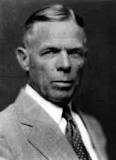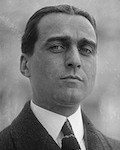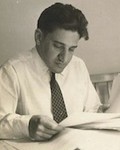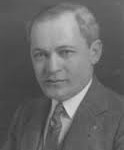William E. Dodd (1869-1940), a University of Chicago historian, was chosen by President Franklin D. Roosevelt’s as ambassador to Germany in June 1933, four months after Adolf Hitler rose to power. The president instructed Dodd that while he could “unofficially” take issue with Nazi Germany’s antisemitism, he was not to issue any formal protests on the subject, since it was “not a [U.S.] governmental affair.” Dodd did privately express his views to German officials, but never lodged any formal diplomatic protests over the persecution of the Jews.
In early 1934, Ambassador Dodd was repeatedly harangued by Nazi government officials about an upcoming mock trial of Hitler to be held at Madison Square Garden. The trial was organized by the American Jewish Congress and cosponsored by labor and civil rights groups. Speakers at the event, held on March 7, 1934, presented evidence of Hitler’s assault on civil liberties and persecution of German Jews. At the conclusion, the Nazi regime was “convicted” of having “turned its face against historic progress and the positive blessings and achievements of modern civilization.”
Dodd worked with presidential adviser Colonel Edward M. House to undermine plans to hold a second mock trial, in Chicago. They convinced one of the main speakers, former ambassador James Gerard, to cancel his appearance. Dodd argued that a mock trial would be inappropriate because Hitler had decided “to ease up on the Jews” and because such anti-Nazi protests might increase public sympathy for the Hitler regime. In private correspondence with Col. House, Dodd said he suspected that Jewish members of his staff in Berlin were leaking sensitive information to American journalists.
Sources: Larson, In the Garden of Beasts, pp.231-234, 239-241;
Dodd, Jr. and Dodd, Ambassador Dodd’s Diary, pp.86-89, 95, 103.











